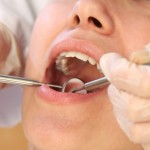
Lucy Hyam discusses a qualitative study that explored the impact of calorie labelling on menus for individuals with current or past experience of eating disorders.
[read the full story...]
Lucy Hyam discusses a qualitative study that explored the impact of calorie labelling on menus for individuals with current or past experience of eating disorders.
[read the full story...]
This review of the effects of dietary acids and habits on dental erosion in the permanent dentition of 10- to 19-year-old adolescents included 52 observational studies. While the findings suggest some risk factors may contribute to dental erosion more high quality prospective studies are needed.
[read the full story...]
Francesca Bentivegna summarises a recent UK longitudinal study, which examines the relationship between fruit and vegetables consumption and wellbeing.
[read the full story...]
This review of the association between screen-time behaviour and diet, including a potentially cariogenic diet, in children younger than 12 years old includes 19 cross-sectional studies. All of the included studies suggest a relationship.
[read the full story...]
This review of the impact of tooth loss on dietary intake and nutritional status included 8 low quality cohort studies. Weak and inconsistent evidence of an association was seen. Further high quality studies are needed.
[read the full story...]
Murtada Alsaif chews over the SMILES RCT of dietary improvement for adults with major depression, which reports encouraging results for healthy diet in people with depression.
[read the full story...]
Only 18 studies were identified for this review of caries risk assessment models. Previous caries experience and salivary mutans streptococci levels were the only two methods with more than 3 studies and the quality of evidence for these two approaches was low.
[read the full story...]
63 studies were included in the review of the association between breastfeeding and caries. The majority (73%) were cross-sectional. The findings suggest that breastfeeding up to 12 months of age is not associated with an increased risk of dental caries and in fact may offer some protection compared with formula.
[read the full story...]
Nine studies were identified for this review of the impact of sense of coherence (SOC) on oral health behaviours. The findings suggest that more favourable oral health behaviour are seen in those with a stronger SOC.
[read the full story...]
Oral health professionals can play an important role in helping patients adopt good health behaviours. This review summarises 7 systematic reviews, finding that the strongest evidence is for smoking cessation and dietary interventions delivered by dental professionals.
[read the full story...]